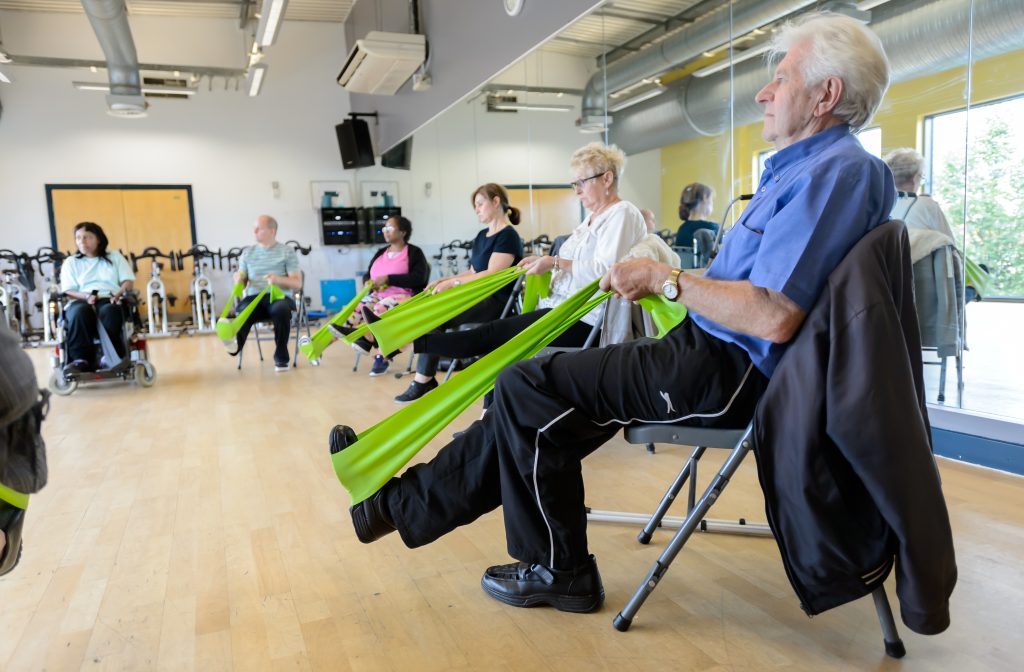The NHS’s Neighbourhood Health Programme has the potential to put physical activity professionals at the heart of prevention and care.
Here, CIMSPA CEO, Tara Dillon looks at the latest opportunity for our sector to contribute to a changing health system.
Earlier this month, NHS England issued a significant invitation to local system leaders including all local authorities and integrated care boards (ICB) to help shape the future of health and care delivery in England. The National Neighbourhood Health Implementation Programme (NNHIP) is not just a reform of local health systems, it’s a call for a new kind of workforce collaboration.
For the sport and physical activity sector, this is a landmark moment. It recognises that if we are serious as a nation about prevention, about managing long-term conditions, and about supporting communities to live well, then our workforce must be part of the solution.
Why this matters now
At its core, the NNHIP is about reimagining how health is delivered at a neighbourhood level. It will see integrated teams of professionals supporting people with multiple long-term conditions, rising risks and complex health challenges. The focus will be on early intervention, community-based support, and reducing demand on stretched acute services.
This programme is a clear shift from treatment to prevention, from isolated services to joined-up neighbourhood models, and from one-size-fits-all approaches to locally shaped, person-centred care, which is exactly where physical activity professionals can have the greatest impact.
The role we must play
Across every community, sport, physical activity and active wellbeing professionals are already supporting people to move more, build strength and confidence, manage health conditions, reduce loneliness, and improve mental wellbeing.
Until now, too often this work has sat outside of health systems and hasn’t been recognised for the power and impact that it has. The NNHIP offers a path where physical activity could be hardwired into local health delivery, and where the professionals delivering it are recognised, resourced, and embedded as part of the multi-disciplinary neighbourhood health and wellbeing team.
Roles that are particularly relevant include:
- Health Navigators – qualified to guide individuals through personalised health journeys, support self-management, and link them to the right activity and wellbeing services.
- Exercise Referral Professionals – working with patients post-diagnosis or treatment to use physical activity safely and effectively in managing conditions.
- Community-based Instructors and Coaches – trusted by local people and skilled at building motivation, connection and sustainable habits, especially among underrepresented and at-risk groups.
- Specialist Practitioners – with expertise in falls prevention, cancer prehab/rehab, cardiac rehab, mental health support, and more.
A workforce ready to deliver
Thanks to the professional standards framework built by the sector, and the growing bank of accredited training and qualifications, the physical activity workforce is now better prepared than ever to support complex health needs.
Professionals working to professional standards are skilled in:
- Health behaviour change
- Clinical condition awareness
- Safe, inclusive activity delivery
- Multi-agency communication
This ensures that when they are invited into local neighbourhood models, they are ready to deliver real impact, safely and confidently.
System change needs sector leadership
To fully seize this moment, we must move from the margins of the health conversation to the centre of it.
Local systems applying to join the first NNHIP wave should be actively seeking out CIMSPA-accredited partners and professionals. Our workforce offers a proven, people-first, prevention-focused approach, something that neighbourhood health systems simply cannot afford to ignore.
CIMSPA will continue working nationally to champion:
- Recognition of our workforce within NHS policy and workforce planning
- Inclusion of physical activity roles in local NNHIP expressions of interest
- Support for training, upskilling and deployment aligned to professional standards
- Evaluation and evidence demonstrating the sector’s impact on health outcomes
We’ll also support our members and partners – professionals, employers and deployers – to connect with their local systems, understand their potential contribution, and position themselves as essential partners in the future of health and care.
What happens next?
- Local systems have until 8 August 2025 to submit their expression of interest to NHS England.
- Selected sites will begin delivery in September 2025.
- Future waves of implementation are expected, with learning from early sites shaping national rollout.
A defining moment for our sector
The National Neighbourhood Health Implementation Programme marks a significant opportunity, not just for the NHS, but for every professional committed to improving the nation’s health through movement, connection and community-based care.
We know the value our workforce can bring. Now is the time to ensure it’s recognised, embedded, and empowered at the heart of local health systems.
Read more here: Why physical activity professionals are pillars of public health
